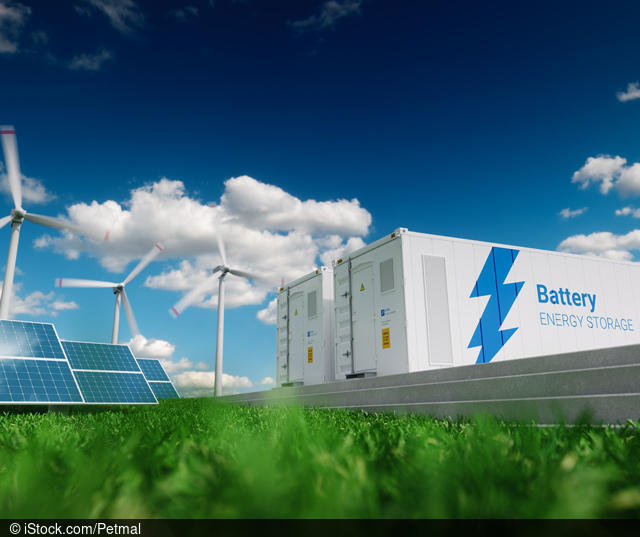The Energy Sector Sets its Sights on Battery Storage for the Future
ResearchTo ensure the widespread use of renewable energies in electricity generation, some kind of storage solution is necessary. Batteries and heat accumulators are set to play a particularly prominent role in this area over the coming decade. Along with investment costs, the environmental sustainability and social acceptance of these solutions are important factors in their successful further development. This is the main finding of the latest ZEW Energy Market Barometer, a survey carried out among energy market experts in Germany by the Centre for European Economic Research (ZEW), Mannheim.
Energy storage systems are a key technology when it comes to balancing out the fluctuating supply of wind and solar energy into the electricity grid in a cost-effective manner and thus serve to further the development of green energy. Many storage technologies, however, are currently still in the test phase and as a result are still not widely used. According to the assessment of the experts surveyed for the purposes of the ZEW Energy Market Barometer, however, the situation could look very different in ten years, with 75 per cent of the experts predicting that the capacity requirements of energy storage systems will continue to rise.
The experts saw the greatest potential for development in battery storage and heat accumulators, with 70 per cent anticipating that batteries will experience the greatest increase in storage capacity over the next ten years, while 47 per cent thought the same was likely to happen with heat accumulators (survey participants could choose multiple options). According to 46 per cent of those surveyed, the linking of the energy sector with the heat and transport sectors, also known as power-to-heat or power-to-gas technology, is also likely to play an increasingly prominent role.
"Batteries can be deployed flexibly and are easy to scale"
“The fact that the experts are expecting a considerable expansion in the capacity of battery storage solutions could be due to the fact that batteries can be deployed relatively flexibly and can easily be scaled up or down. In addition, their use in other sectors than those previously mentioned, such as in the entertainment or automotive industry, could result in significant cost reductions,” says Dr. Wolfgang Habla, a researcher in the ZEW Research Department “Environmental and Resource Economics, Environmental Management” and one of the project leaders for the ZEW Energy Market Barometer.
Few experts predicted an expansion of pumped storage or compressed air reservoirs, while none expected any further development of flywheel generators or magnetic storage systems. “In the case of pumped storage or compressed air reservoirs, environmental conditions are a key limiting factor. Meanwhile, technology and cost seem to be the main issues restricting the use of flywheel generators and magnetic storage systems,” says Habla.
Investment costs are the most important factors in the implementation of energy storage systems
According to the surveyed experts, investment costs are the most important factor in the widespread implementation of energy storage systems. Also considered as relevant factors are the capacity and reaction time of the given storage system, that is, how quickly the stored energy can be made available for use. Alongside economic and technological factors, the surveyed experts also viewed the sustainability and social acceptance of storage technologies as a key factor in their further development.
“This could become an issue if storage technologies are shown to cause damage to the environment through their production or use. In particular, the production of batteries involves the use of rare earths, the extraction of which requires vast areas of land and leaves a considerable environmental footprint. Even in areas where the development and expansion of pumped-storage plants might be an option, this is often met with resistance from local residents and environmental activists,” Habla explains.
In the view of the surveyed experts, however, the greatest obstacle to the more widespread use of storage technologies is the lack of public investment incentives (62 per cent).
For more information please contact
Dr. Wolfgang Habla, Phone +49 (0)621/1235-155, E-mail wolfgang.habla@zew.de
